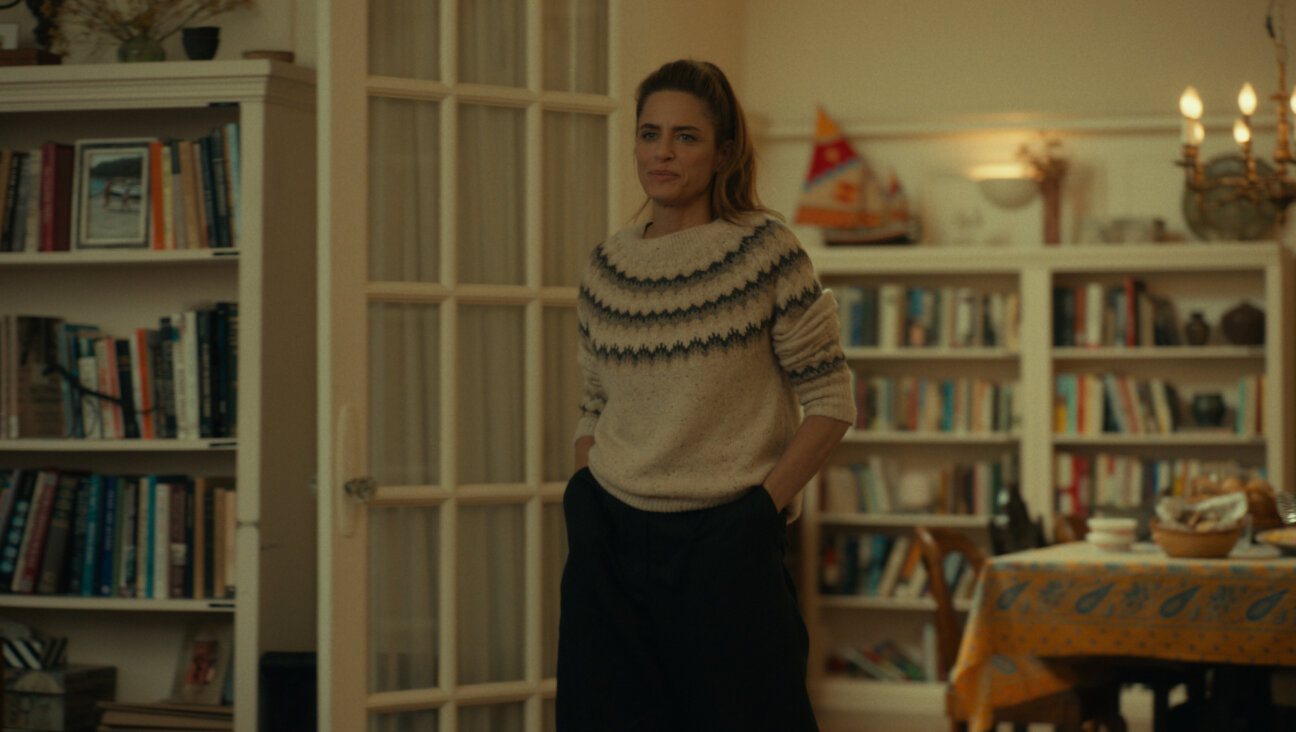The Dynamic Duo Behind Poland’s Jewish Revival
Wojtek and Malgosia Ornat are pioneers in the promotion of Jewish culture and Jewish-themed tourism in Kazimierz, the old Jewish quarter of Krakow, Poland. Today, the Ornats, who in 1992 opened the first Jewish-style café in Krakow, run the popular Klezmer Hois café-hotel-restaurant, a Jewish publishing house called Austeria, and Jewish bookstores in Krakow and Budapest. They recently rented the High Synagogue in Krakow to use as exhibition space.
Both Ornats have Jewish roots, but neither was raised Jewish. Wojtek had a Jewish grandfather, and Malgosia was 19 when she discovered that her mother’s mother had been Jewish. They recently spoke — generally in unison, as Malgosia is more versed than Wojtek in the English language — with regular Forward contributor Ruth Ellen Gruber, whose own book, “Letters From Europe (and Elsewhere),” was recently printed by their publishing house.
Ruth Ellen Gruber: How did you get interested in Jewish culture?
Wojtek and Malgosia Ornat: Undoubtedly our Jewish origins were the triggers. We have considered ourselves Jewish since the time we found out about our roots. Moreover, Wojtek has always been interested in the history of Polish Jews. We actively participated in Jewish festivals in Krakow and thought that Jewish culture should be present in Kazimierz not only during a short period in summer.
REG: But can Jewish culture exist in places where no Jews live?
Wojtek and Malgosia Ornat: Yes, it can, and Krakow is a very good example of it. But even in Krakow there are Jews — though there are very few of them, and maybe they are not very religious, and maybe they don’t celebrate Jewish holidays. The problem of Jewish culture without the Jews is a rather complicated one, and we will have to sit and discuss it over a good bottle of wine.
REG: You now run Jewish bookstores, have a Jewish publishing house and have rented the High Synagogue for exhibition space. Why did you expand your operations?
Wojtek and Malgosia Ornat: We wanted to get more involved in reviving Jewish life in Poland, and we wanted to leave something for the next generation — that is why we started a publishing house. But it wouldn’t have been possible without a restaurant and a small hotel that are profitable and let us invest in books. The High Synagogue, which opened this past spring with an exhibition of drawings by the director Andzrej Wajda to illustrate “Dybbuk,” will give us an extra space for lectures, exhibitions and film showings. We are slowly becoming a Jewish cultural center — and that is what we are aiming for.
REG: Has the Jewish tourist scene in Kazimierz developed the way you thought it would? What do you think about the “Jewish” dolls and other “Jewish” souvenirs on sale?
Wojtek and Malgosia Ornat: Yes, in a way it has. Kazimierz became one of the most important [tourist] sights in Krakow. People from all over the world come here to see the synagogues, Jewish cemeteries…. In addition to Austeria and Klezmer Hois, there are several institutions that cultivate Jewish culture — for example, the Galicia Jewish Museum and the Festival of Jewish Culture. They organize exhibitions, lectures, book promotions, film showings, concerts. Unfortunately there have also appeared ventures whose main interest is business. Many of these do not have the vaguest idea about Jewish culture or history, and they don’t even care about it. They serve food they call Jewish even though it has nothing to do with traditional Jewish recipes, aside from the name “Jewish.”
We do not like the “Jewish” dolls [for sale], but unfortunately they are also available in the Sukiennice [covered craft hall in the main market square] and not only in Kazimierz. There is a deeper problem of stereotypes in Polish culture. The fact that these dolls are also sold in Kazimierz shows that the people who run those businesses are doing so by complete accident and have no respect for Jewish heritage.
REG: Many other Jewish-style cafés have opened, in Krakow and in other cities. Some of these places openly have used Klezmer Hois and your earlier cafés as models. What do you think of this? What are the differences between the types of Jewish style cafés? Are some more “authentic” than others?
Wojtek and Malgosia Ornat: It is a compliment that many of the Jewish-style places all over Poland have adapted our model. We think it suits Kazimierz, since it brings back the sentiments and creates a special ambiance of past years, when Jewish life was a fact — not history. Of course among the Jewish places there are those that are more authentic than others. But one can easily recognize them by the owners, by the people who go there and by the food they serve. Klezmer Hois is a special case; we have our regular customers, and among them are members of the community, for whom it is a home. It is a place where Jewish intellectuals meet, and where, when you come, you meet someone you can talk to.
REG: Why did you expand to Budapest? What are your plans there? What differences do you find between Budapest and Krakow, between Kazimierz and the Budapest’s 7th District, the old Jewish quarter there?
Wojtek and Malgosia Ornat: Budapest is a step forward toward our idea of Central European publishing. We hope to open further branches in Prague and Vilnius. Budapest’s 7th District reminds us of how Kazimierz was when we started out. It is slowly changing: We can be eyewitnesses to those changes, as we were in Kazimierz.
















